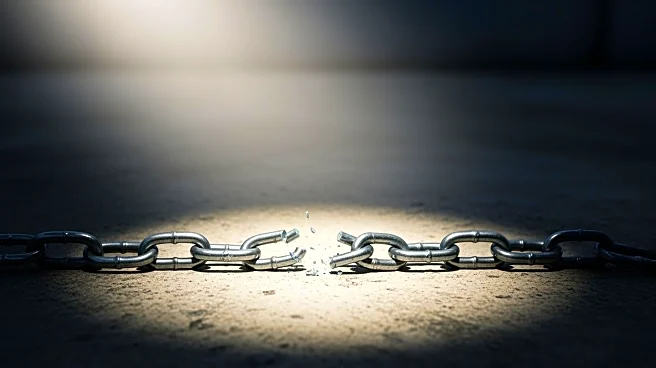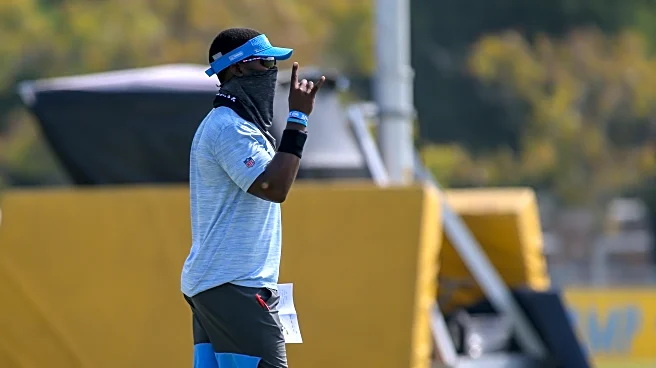What's Happening?
Hamas has reportedly agreed to stop public executions in Gaza after warnings from President Trump about a 'swift and brutal' response if the ceasefire is violated. The executions, which targeted suspected collaborators with Israel, threatened the fragile
truce brokered by the U.S. Trump has indicated that further violence could lead to direct or allied military intervention. The U.S. is considering deploying a temporary international stabilization force in Gaza, although the plan has not yet been implemented due to concerns from potential contributing countries.
Why It's Important?
The halt in executions is crucial for maintaining the ceasefire in Gaza, which is essential for regional stability. Continued violence could lead to renewed conflict, affecting civilian lives and international relations. The U.S. has a vested interest in ensuring the ceasefire holds, as it reflects on its diplomatic capabilities and influence in the Middle East. The situation also underscores the challenges in dealing with non-state actors like Hamas and the complexities of enforcing peace agreements.
What's Next?
The U.S. is monitoring the situation closely, with Trump indicating that military intervention remains a possibility if Hamas violates the ceasefire. The international stabilization force proposal is still under consideration, with contributing countries expressing concerns about potential confrontations with Hamas. The U.S. and its allies are prepared to act if necessary, but are currently giving the truce a chance to hold.
Beyond the Headlines
The situation in Gaza highlights the ethical dilemmas in dealing with groups like Hamas and the impact of internal violence on peace processes. The international community's response to Hamas's actions will influence future diplomatic strategies and the potential for long-term peace in the region.















